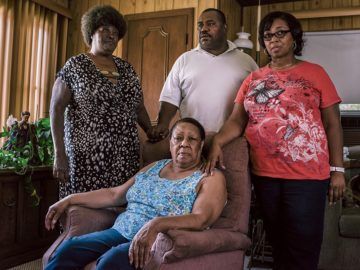Ta-Nehisi Coates in The Atlantic:
 By his own lights, Daniel Patrick Moynihan, ambassador, senator, sociologist, and itinerant American intellectual, was the product of a broken home and a pathological family.
By his own lights, Daniel Patrick Moynihan, ambassador, senator, sociologist, and itinerant American intellectual, was the product of a broken home and a pathological family.
…Influenced by the civil-rights movement, Moynihan focused on the black family. He believed that an undue optimism about the pending passage of civil-rights legislation was obscuring a pressing problem: a deficit of employed black men of strong character. He believed that this deficit went a long way toward explaining the African American community’s relative poverty. Moynihan began searching for a way to press the point within the Johnson administration. “I felt I had to write a paper about the Negro family,” Moynihan later recalled, “to explain to the fellows how there was a problem more difficult than they knew.” In March of 1965, Moynihan printed up 100 copies of a report he and a small staff had labored over for only a few months.
The report was called “The Negro Family: The Case for National Action.” Unsigned, it was meant to be an internal government document, with only one copy distributed at first and the other 99 kept locked in a vault. Running against the tide of optimism around civil rights, “The Negro Family” argued that the federal government was underestimating the damage done to black families by “three centuries of sometimes unimaginable mistreatment” as well as a “racist virus in the American blood stream,” which would continue to plague blacks in the future:
That the Negro American has survived at all is extraordinary—a lesser people might simply have died out, as indeed others have … But it may not be supposed that the Negro American community has not paid a fearful price for the incredible mistreatment to which it has been subjected over the past three centuries.
That price was clear to Moynihan.
More here.
